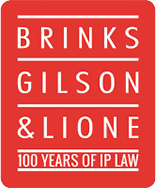On July 10, 2019, in General Electric Co. v. United Technologies Corp., No. 2017-2497, the Federal Circuit found that General Electric Company (“GE”) had not suffered an injury in fact sufficient for Article III standing to appeal a Patent Trial and Appeal Board (“PTAB”) decision that upheld several claims of United Technologies Corporation’s (“UTC’s”) patent in an inter partes review (“IPR”). The court’s decision highlights just how difficult it is for a patent challenger before the PTAB to obtain Article III standing necessary to appeal to the Federal Circuit absent concurrent district court litigation.
Majority Opinion
GE was not producing and had no definite plans to produce an engine that would infringe UTC’s patent. The Federal Circuit rejected each of the three bases argued by GE for Article III standing to appeal the PTAB’s decision holding UTC’s patent not unpatentable. First, the Federal Circuit found GE’s purported competitive injuries too speculative, highlighting that GE never asserted that it lost bids to customers because it only offered a non-infringing direct-drive engine design or that it only offered a direct-drive engine design because of UTC’s patent. Second, GE presented insufficient details to establish economic loss due to research and development (“R&D”) costs, given that GE provided no details on those costs and did not demonstrate that it had definite plans to develop an engine with the features claimed in UTC’s patent. Third, the Federal Circuit reiterated its prior holding that statutory estoppel under 35 U.S.C. § 315(e) does not amount to an injury in fact for Article III standing. E.g.,AVX Corp. v. Presidio Components, Inc., 923 F.3d 1357 (Fed. Cir. 2019).
Concurring Opinion
In his concurring opinion, Judge Todd M. Hughes agreed that dismissal was appropriate under the Federal Circuit’s current precedent, but expressed his view that the precedent was incorrectly decided. Judge Hughes observed that the risk of a future infringement suit is not the only way that an IPR petitioner can show injury in fact, and critiqued the court’s prior decisions suggesting otherwise, particularly AVX. In Judge Hughes’ view, such “precedent has developed an overly rigid and narrow standard for Article III standing in the context of appeals from inter partes review proceedings.”
But for the Federal Circuit’s prior precedent like AVX, Judge Hughes would have found that GE had competitor standing because “government actions altering the competitive landscape of a market cause competitors probable economic injury sufficient for Article III standing.” According to Judge Hughes, GE met the requirements for competitive injury because GE and UTC were direct competitors in a three-player market, where the technology at issue took 8-10 years to develop and required high up-front investments. For example, Boeing had requested a geared-fan engine that implicated UTC’s patent, leaving GE unable to meet Boeing’s request without spending resources to design around the patent: a competitive injury.
Issues To Consider
General Electric further solidifies the importance of considering Article III standing for an appeal before a party files an IPR on a patent that has not been asserted against it. An IPR petitioner should take steps early on to increase the chances of proving Article III standing at the appellate stage, including documenting exactly which designs it avoided due to a competitor’s patents, and exactly how much it spent designing around those patents.
Judge Hughes’ concurring opinion provides some hope for IPR petitioners that the law may eventually turn in a more favorable direction on the issue of Article IIII standing. His concurring opinion makes clear that not all Federal Circuit judges are on board with the current, stringent requirements for Article III standing from the PTAB. Although the Supreme Court recently denied two petitions for certiorari that involved parties who lacked Article III standing to appeal from a PTAB decision holding challenged patents not unpatentable, RPX Corp. v. ChanBond LLC, No. 17-1686; JTEKT Corp. v. GKN Auto. Ltd., No. 18-750, this area of law may receive further attention from the en banc Federal Circuit or Supreme Court in the future.





 />i
/>i

